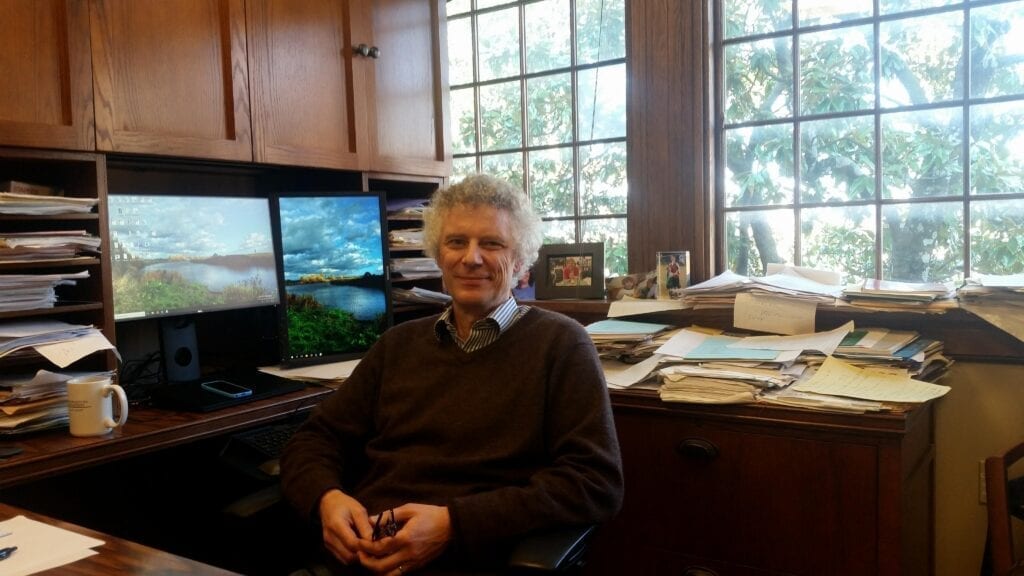Meet math professor Stefan Richter
Richter researches pure mathematics and advises graduate students.

Students know what other students do. Students study, work on projects, utilize tools like the mean, median and mode calculator, write papers and complete internships or practicums. But professors’ work often remain mysterious. Students wonder what professors actually do.
Math professor Stefan Richter gives insight into the mysterious life of mathematic professors. Richter is one of about 38 math professors at the University of Tennessee and has taught here for 30 years. He teaches, completes committee work and advises students.
“I teach two different classes. One is the differential equation class, and the other is a 400-level undergraduate course. I have office hours and grade exams,” he said. “Also, I am currently advising math graduate students. I have some other committee duties as well.”
Richter serves on the teaching effectiveness committee where members visit colleagues’ classes to evaluate for promotion. His committee work also includes overseeing graduate assistance and teaching awards.
Professors complete research in their interest areas outside the classroom. Richter researches pure mathematics.
“It has applications for other fields. There are a lot of branches in mathematics,” he said. “We need to develop some techniques in how to deal with data they are collecting and the most efficient way. I do calculus, derivatives, and integration, then go on to a more abstract level. I prove theorems and write papers about them.”
Richter emphasized the importance of collaboration in research.
“I have a number of some co-authors. I used to work a lot with professor Sundberg. But I do have collaborators from other places too,” he said. “I have collaboration with a person I know in Sweden, and I have couple collaborators right now at Washington University.”
Richter and his colleagues communicate via Internet, work on problems and attend conferences throughout the year.
His teaching philosophy focuses on effort. Students’ efforts will show in results.
“Everyone who wants to do well at anything that’s worth while needs to spend some time by themselves working on the subject. So, I try to bring in class material, hoping that the students go back home and sort of work out the details of the calculations so they can remember how things work.”
Richter enjoys his teaching, but advising can prove difficult from time to time.
“Sometimes, you have to decide as an advisor when the research is good enough to be called to be the Ph.D. Some students want to graduate quicker, and I have to uphold the standard acceptable for the university level.”
However, his proudest moment remains Ph.D. graduation.
“It’s a lot of hard work for them. Ph.D. students will be here five or six years on working on research. So, when they finish, it is a proud moment too. I didn’t have that many, just a handful of them, about six over the years.”
Richter also has a special quirk often questioned by students: his sweater obsession. When questioned, he laughs and leaves the obsession to speculation.
Originally from Germany, Richter received his Ph.D. from the University of Michigan in 1986.



